The property industry could have been forgiven for fearing the worst following the shock EU referendum result last month.
But the sector has lived through harder times than these and bounced back, and is already eyeing future opportunities. Some of the industry’s biggest names met to discuss the challenges ahead…
Our roundtable panel met to discuss topics including:
- The effects of Brexit now and in the short and long term
- Who’s bullish on investment and leasing deals
- The impact on housebuilders, occupiers, financing and lending
- How resilient the domestic market is
Our panel of experts
Faraz Baber, executive director for policy, London First
Paul Brundage, executive vice-president and senior managing director, Oxford Properties; BPF junior vice-president
Steven Cowins, partner, corporate real estate, King & Wood Mallesons
Per-Mario Floden, director, Eastdil Secured
Helen Gordon, chief executive, Grainger
Liz Hamson, editor, Property Week (chair)
Killian Hurley, chief executive, Mount Anvil
Chris Ireland, UK chief executive, JLL
Greg Mansell, head of research, Real Assets, AXA Investment Managers
William Naunton, UK head of real estate, King & Wood Mallesons
Andrew Pettit, founding partner, Revcap
Simon Ricketts, partner, planning, King & Wood Mallesons
Andy Robinson, managing director, Colmore Tang Construction
Harvey Soning, chairman, James Andrew International
Richard Tice, chief executive & partner, Quidnet Capital
Colin Wilson, head of UK & Ireland, Cushman & Wakefield
It is only five weeks since the UK made the historic decision to leave the EU, sparking political, financial and social turmoil - and inevitable problems for the property industry.
While the outlook remains uncertain, Theresa May’s appointment as prime minister and her swift selection of a cabinet has restored a semblance of calm.
Not that the industry was panicking. Having survived the global financial crisis, it is practised at defending itself against the slings and arrows of outrageous fortune and is, indeed, already eyeing the opportunities. It was with this in mind that Property Week and King & Wood Mallesons invited some of the biggest names in the industry to debate the post-vote and post-Brexit landscape and find out what they think the key challenges and opportunities are.
As you would expect from such an opportunistic, entrepreneurial and resilient bunch, nobody was about to start talking the market down.
Liz Hamson: Our aim at Property Week has been to try to frame the debate as positively as possible and highlight the Brexit opportunities up to 2019 and then in the post-Brexit world. With that in mind, I want to focus on what we do now, where we think we are now and what the opportunities may be. What is the outlook like and what positives can we see?
Chris Ireland: It’s great that we have a government - we had a political vacuum before and this is a start. Theresa May is not a bad option when you look at who it could have been.
Richard Tice: Coming from the pro-Brexit camp, I see the inclusion of Liam Fox, David Davis and also Boris [in the cabinet] as a hugely positive sign of intent. There is less chance of backsliding on the delivery of Brexit.

LH: What do people feel about May?
CI: She has demonstrated strength of character and her statement in favour of an industrial strategy and housing is interesting. But can she turn fine words into action?
LH: Her leadership sends out a positive message to the remain camp. Harvey, you are impressed aren’t you? Any cause for concern?
Harvey Soning: Very impressed. The speed of the transition has been great. There is also the possibility that, if the government negotiating team and Europe want us to stay around [inside the EU] and they came up with a deal on immigration with less control from Brussels, she could go to the country for a general election and say, ‘look, return the Conservatives to power and this is the deal we can do in Europe. Do you want us to stay in?’ Not a referendum but a general election. Having said that, there is also a question as to whether Europe will be the same as it is now in two years’ time. We have the French and Dutch elections. Will the far right parties have greater control? That would certainly spook the electorate.
Andy Robinson: The government we have got now is about as right wing as I can remember.
Simon Ricketts: Although May is a stabilising force, I wonder whether the scorched earth policy she has adopted in putting together the cabinet team means we have unnecessarily lost a lot of continuity, especially in the planning and development arenas.

Faraz Baber: We’ve lost well-regarded ministers who knew their briefs. We have a new set of ministers and a new secretary of state for communities, and we have lost senior officials like Peter Schofield, who will leave the department this month. As an industry, we are going to be working with a new set of officials and politicians just as the new Planning Act has slipped through. We also have a new housing planning bill coming through and a new mayor. London itself stays on hold until it can finalise a deal with the national government. The ripple effect means things will be delayed when many in this room want to know where they can aim, shoot and deliver.
Killian Hurley: We’re faced with a period of two years of uncertainty. As business people, we all want certainty and we don’t have it.
LH: What do we think of the new people, for example Gavin Barwell?
KH: There are some cracking individuals but it will take them time to get up to speed. London needs new homes and the ability to get joined up thinking between local and central government. But, with everyone settling in, it will take longer.
William Naunton: Under Osborne, there was a lot of continual, below-the-water taking tax from real estate. It is time for the industry to start lobbying the new chancellor.
Paul Brundage: The industry has to make sure its contribution is viewed as a partnership, so leading with tax is probably not the best way to attract the government’s attention at this time.
LH: So what is the best way to get attention?
PB: Make sure it understands we are aligned with its priorities. The significance that the industry represents is huge, from housing to commerce to leisure. There are three or four key priorities we need to get out there and engage with the government on: building the new economy, maintaining growth, housing the nation and investing in our towns and cities.
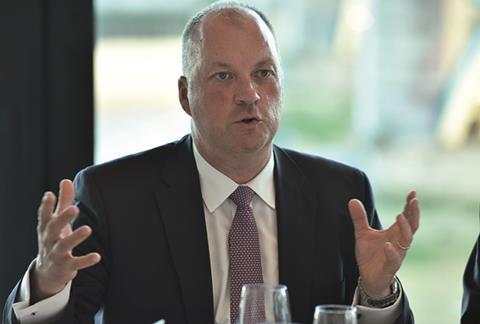
We need to make sure we are aligned with the government’s priorities, although it’s not entirely clear at the moment what those priorities are. Over the next couple of weeks there’s a meeting with the DCLG and treasury, which members of the [British Property Federation] policy committee will attend, and there is a meeting the following week with the Bank of England talking about the various financial policy initiatives.
RT: How closely will you work with the Home Builders Federation (HBF)? In the nicest possible way, the BPF has historically been very commercially focused. At the macro level, this is all about property in both residential and commercial.
Helen Gordon: The HBF in the past has been narrowly focused, whereas this is the whole-built environment, mixed-use communities etc. I hope government listens to the BPF more, because it’s not just about housing but large-scale development and lots of other things.
Colin Wilson: Real estate, housing and infrastructure involves real money, whereas taking the base rate down doesn’t feel very real. Motorways and airports is more real.
LH: The public will want to see delivery on the housing front quite quickly, yet the housebuilders’ share prices tanked in the week after the vote. What do we think will happen to them?
FB: The manifesto is clearly about housing and starter homes but the challenge all of us face is that the driver for the new act is coming from No.10 and No.11. The DCLG were partners rather than the drivers of that relationship. The question is, will No.10 and No.11 continue to push that or will they be busy thinking about trade policy and Article 50? Will they maintain an interest in planning reform agendas? That will give you the answer I think about whether housebuilders will know what they are aiming at.
HG: Housing is a real driver of the economy and it’s quite an easy lever to pull. Putting in small interventions that allow houses to be built is a real driver. The government has been around long enough to know it runs into so many areas. Getting people buying houses will stay an important flagship policy in driving the economy, and that is why it will remain important.
AR: There is a wider issue. Have we got the capacity to build the houses we need? We haven’t got the skilled trades we need. We need somewhere approaching 600,000 new skilled trades to deliver 240,000 houses per year through to the next election. Where are they going to come from?

KH: It’s also worth noting that it’s not British passport holders who have built our houses. If we had more certainty and stability, we could solve the skills crisis.
AR: This could be a good thing and force us to look at more technology and more manufacturing to help alleviate the loss of skills and to hit the numbers of new houses needed.
RT: Another issue a new government could address is the cost of getting planning, which is so enormous up front. Outside the M25, there is very little commercial activity going on. There are no small regional offices being built in small towns. If we could move more towards the Swedish model of getting outline consent, that could crystallise the value of a scheme and you have something tangible to be able to borrow money and do some surveys. Just count the number of consultants on the average scheme. You’ll need 30 based on the last one I’ve done.
HG: I’m still smiling at your comment, Richard, that you don’t see many sheds being built. You do see them and they all have a little blue and yellow flag on them.
RT: I’ve been all over the country in the last year and can name only three sheds of less than 10,000 sq ft.
LH: Is that an opportunity?
RT: Yes, through the lobbying groups, we can reduce up front planning consent costs to make schemes more viable.
PB: Can some of that planning work be improved through devolution? The devolution agenda, which arguably has a basis in trying to unite the country, could achieve two objectives; people have a view that they have a say and it decentralises decision making, so as an industry, should we get behind that and say we support devolution?
LH: Paul, do you think the devolution agenda will be aided by Brexit?
PB: None of us know what will happen over the next two years, and how it will be implemented is a difficult question.
LH: Do we see evidence that capital is still flowing into the regions?
CI: Since the referendum, the occupational story has remained strong in the big six or eight regional centres. The fallout has been very small to date - most deals are going forward on the previously-agreed terms.
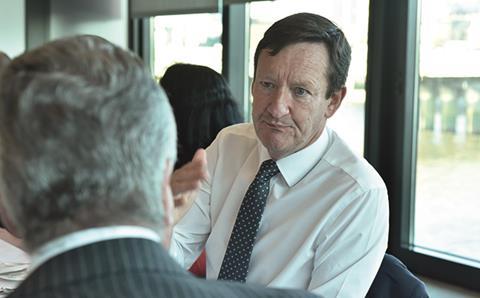
WN: Is it too soon to see a change?
CI: Yes, arguably, it is too soon. We don’t know exactly what the [Brexit] plan is going to be. The first stage does not end until we have a sense of direction. The second stage will be how long it takes to do that journey, but the occupational side in the regions is holding up strongly for now.
LH: The big question is the banks and what they do. We sent a reporter off to Frankfurt and Berlin last week and there has been very little in terms of occupiers thinking of relocating there.
PB: It’s too soon to know. No one knows the rules of the game.
WN: There isn’t the housing or the schools’ infrastructure. Frankfurt is a city of around 650,000, Dublin about a million. There is not the infrastructure available to support a mass movement of the banks.
RT: We have spoken to most of our tenants and most say Brexit will make no difference at all to them. People have been talking about expanding and growth. I accept there is more anxiety in the City of London and among the banks but, for most people around the country, they don’t care about the banks.
KH: I accept people’s view of the banks but London needs to continue to prosper, otherwise the rest of the country will suffer.
HS: If London sneezes, the rest of the country will get the ‘flu.
FB: The devolution point is also critical here. We mustn’t forget that, from 2020, local government needs to be more self sufficient. How will they gear themselves up? They need to bring in more cash to be more sustainable. That’s not far away. Local authorities are going to have to be smarter and much better equipped. Do they really understand that?
KH: Some of them do. Some of the London boroughs have really got it and are open for business. One of the few positives about Brexit is the tremendous opportunity for local government to grab this thing about best ‘effing’ value. It is slowing down development in London. We are transferring land from land holder to more land holders and it is not being developed.
RT: We can change that. There is an opportunity with a new government which thankfully can no longer blame Brussels. We can hold them accountable. Everybody should be asking ‘what should we be cutting out to stimulate more growth?’. It is our responsibility as an industry. We have to simplify this process, because it is holding back growth.
SC: Won’t the government be distracted? They are not going to want to take on more.
FB: Think back eight years ago about the fantastic regeneration with the Malays and Chinese coming in. Do you think there’s the confidence now, for example, for the Malaysians to come in and say ‘we will take that’, given where we are in terms of the market?
RT: Sterling is cheaper, so it is even more attractive to buy London real estate. Their issues are not Brexit, or not what is going on in China, but what is going on with global growth?
LH: Who do we think is now looking at the UK with renewed interest post Brexit?
Andrew Pettit: Look at the Japanese acquisition of ARM. We’ve also got Steinhoff buying Poundland. Asian investors are telling us they want opportunities.

LH: More so than four weeks ago?
AP: Yes, more people want to find assets. The market is not correcting as hysterically as many are suggesting. There seems to be a single-digit discount, if that, for speed.
LH: Is that interest in the whole country or just London?
AP: London to start with. We as a business are much more focused outside London, where the market is below where it was, but the opportunity has not yet emerged. The occupational market in particular has to play out.
HS: We are seeing Eastern interest in central London real estate. Enquiries are 50% above three weeks ago during this week alone. These are serious purchasers who have purchased before. They are not fishing.
Greg Mansell: Our focus is on London. Liquidity will be there. The regions are too expensive relative to the liquidity you get there and the growth on the income side.
Per-Mario Floden: Eastdil is a large exporter of Asian capital into the US, European and UK markets. In the conversations in the weeks following the vote, they are comfortable with the level of exposure they already have in the UK and they are waiting to see what is going to happen. We don’t see a big eagerness to come in on investments in London or the UK.
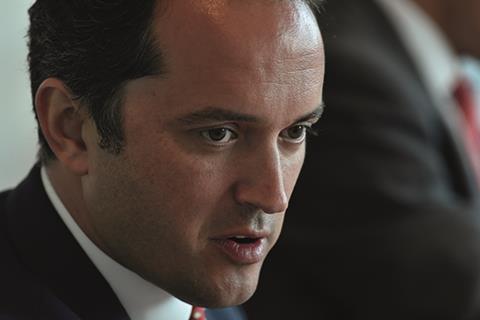
They are waiting on the sidelines for opportunities because of the currency and the instability in the market. When the real economy becomes clearer, then they will act. The market has taken some respite from the fact that Article 50 has not been triggered, but the alternative is not clear. ‘Brexit means Brexit’ is a brilliant political phrase, but what does it actually mean?
LH: What about short-term opportunities? The developers and agents we spoke to are saying our activity is as it was and nothing has changed in the days after the vote. They were very bullish. What other opportunities do people see, and are there other sectors which might benefit?
FB: If we get a decision on airports, that would be fantastic. That would set out a whole new industry for growth. Some early big decisions, on HS2 or Crossrail 2 for example, are things that would drive activity.
Steven Cowins: The private rented sector (PRS) may benefit if the housebuilders take a kicking, as they will have less confidence and less ready access to capital because of what has happened. That was always one of the problems with PRS - it was always getting outbid by housebuilders before.
WN: Can I ask about Scotland? What is the general view as to whether Scotland has any certainty? I would say that is less certain.
HG: Scotland had a problem at the time of the vote. People realised there was an overweighting towards Scotland. There has been gradual recalibration there and it has not repriced enough to attract people back for the extra risk of things like the extra local taxation on property.
HS: Everything depends on confidence. After the summer holidays, I don’t think confidence will improve. There will be a lull because of uncertainty in the world and especially elections in the US and in Europe next year.
RT: I think we will come back from summer and say things are uncertain, so let’s just get on with it anyway. People need income. All over the world, gilt yields have gone down, so people will say property is really good for income. In an uncertain world, you want to go to certain countries, and we look more certain than other countries like Italy. Where else do global investors put their money? It’s 50/50 you get Trump in the US after all.
CI: I agree with property producing long-term stable income streams where they are index-linked. There are new deals being traded at the moment. The pricing if anything is getting keener - it’s very definitely not weaker for that quality of product. But, as investors go risk-off, you are going to get some interesting effects in similar sub-markets which are more dependent on the quality of the specific asset and income stream. A lot of the different sectors have different drivers.
FB: There is the question of what should be done in an environment like this. People like Killian and Helen should start making deals with local government. They can say the world has changed; you have not got as much as you thought and we would like to shore up our businesses and deliver the volume and the right kind of housing that you need. This is an opportunity for the development machine to work much more closely with them in partnership.
KH: I think you are right. As a relatively small business, we could probably deliver a couple of thousand more homes per year. If you had five businesses the size of ours, that’s 10,000; with 10 it’s 20,000, and that’s part of the solution to increasing the housing in London. If there is imagination from local authorities, we can increase our output substantially.
HG: From a housebuilder’s point of view, because there is this demand for housing to rent, and in a period of lower confidence, people will rent for longer. There is enough money out there to develop homes to rent. We are already talking to people. People are worried confidence has dipped, that sales will take longer and that, if you can do 200 PRS units to start with, you actually start to create a positive environment.
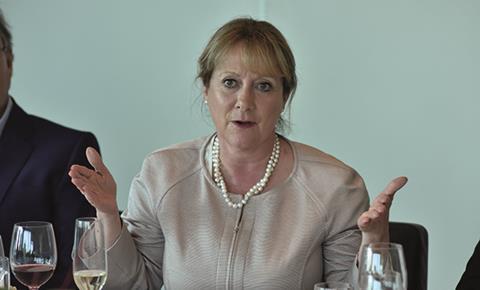
AR: What is also interesting is the review of permitted development in London boroughs. In the regions, it’s fine. We have developed more than 1,000 units under permitted development. It’s quick - in 56 days, you have a decision and it’s certain, you can get on with your work. To have something moving like that in London would have an immediate effect.
LH: What about corporation tax coming down to 15%? What effect would that have?
RT: We will have to wait for the autumn statement for the chancellor to work out how much money he has got.
KH: We need to be careful about the message that sends around fat cat corporates. Stamp duty would be far more impactful; it would free up transactions and increase volumes.
LH: What about funding and its availability. Could that contract? Could lenders pull back?
PMF: We are in the market with roughly €8bn equivalent of loans, and about a quarter to a third of that is in the UK, in various stages of execution. One of the biggest - roughly £500m - we brought to market the week after the vote. We had roughly 12 to 15 parties show up, probably five fewer than we expected. The margins widened between 30 and 70 basis points, and we got given two options: 50% or 60%.
Everyone came in on 50% and this is all central London and quite core, and we had a good response, which was good. But we had a broad spread of pricing and a few parties wanted the dust to settle. I was encouraged, because it was a large transaction and there could have been complete silence. Anything that implies or involves syndication is probably going to go quiet for a while unless the underwriting premium is so wide that it creates a very comfortable syndication position.
HS: The banks are steady and they are well funded. It depends a lot on valuations and it will take some weeks or months to come through about the value of real estate.
PMF: From a borrower’s perspective, there is clearly caution as to where market values might go, how severe declines might be and over what period of time.
LH: The loan to value is much more stable now and yet people have looked for parallels with 2007 and 2008. Is this worry overstated?
CW: We are still only three weeks into this and we have seen deals on the leasing and investment side. There has not been contagion; we know loan to value is lower than last time and we know there is a ready refinance market there. I’m not saying everything has settled down yet. There is more to go for the market to find its level but we have found investors prepared to commit to the market and establish asset values.
CI: Generally we are much more positive on London than a lot of the analysts. Within three weeks of such a major event we have had transactions agreed and done, and things going under offer, banks lending, offers going out, and a functioning debt and property market.
PB: At the moment London is the most liquid and transparent market in the world. The market is functioning but we have to be very careful about getting over confident. We have created change. That could be good or bad. The result is that people are uncertain. That creates opportunities. For Asian investors, maybe, that is a good thing. If you are a UK institution dependent on a bunch of things, that might not be a good thing. We need a stable and growing economy that will lead to renewed business confidence with people building and buying houses. People have choices and it is a global marketplace. Capital will choose London and the UK or it won’t. It might not choose real estate. We have to be very careful not to be arrogant that this is a great outcome and it is all going to be fine.
LH: What will happen over the summer?
HG: If we are a long-term investor, we would look to make hay during this period of uncertainty.
GM: Our risk-on options were and still are logistics developments, particularly if finance goes away when a client needs something building. Sterling is a no-brainer for tourism, whether through staycations or foreigners coming in.
LH: To round up, I’d like to ask everyone what they think the post-Brexit world would look like in an ideal world.
AR: Let’s stay calm. It’s a time for leadership and not knee-jerk reactions. There are no facts yet to get hold of to form an opinion on anything. Do what you do as well as you can. If you are well financed, go for it until it becomes clear as to where the markets sit. You have to carry on doing your daily business and keep your staff energised and motivated, not wondering whether they will have a job next month or next year.
SC: I think transaction volumes will be lower in the run up to Brexit. You hope long term it will be positive, involving a good deal with Europe and better ties with the Commonwealth. The timing is uncertain. There is a precedent for a country leaving the EU - Greenland - and that took four years to agree the leave deal. Maybe we will have a bigger machine and it will be quicker.

RT: My feeling is we will carry on as normal. Most people will notice little difference and become bored of Brexit.
HS: There’s an old New York saying: ‘see the donut not the hole’ and that’s what the real estate sector should concentrate on. I have confidence in this country and the government which has just come in.
CI: There is a lot of activity - a lot of good news right now. Longer term, I can’t form a view.
CW: We have motivated parties on both sides. There is confidence that we are making progress which will translate into the occupier side and the investor side, so long as we react positively and carry on making progress.
LH: What about the tailing off of deal activity, and the impact on things like staff retention, job cuts in transactions teams and hits to hiring? What is the short-term outlook for staff?
CI: We are focused on the opportunities. We’ve got to keep everyone on the front foot.
KH: We are in a period of uncertainty but we still remain positive. Britain, like Ireland, is an island nation. We are capable of sorting this out. We can create a sensible solution.
FB: I want to see the government make a decision on airports to demonstrate that Britain is open for business. I would like it to stop tinkering with the planning system. Enough is enough, we will have to work with it, so everyone can deliver rather than have to learn new things every five minutes. The mayor is doing a great job. He should continue to champion the City but also make sure he delivers those 50,000 units per year for the next 10 years at least.
AP: I would like to see the government negotiate the Brexit terms as soon as possible, getting agreement on the principles and the main issues. Having said that, I do fear the Europeans will have their own agendas and that it will be complex.

Germany probably will be friendly, but domestic political pressures in France and the Netherlands may mean they can’t be seen to be doing a soft deal with the UK. Also, will they want an offshore tax haven on their doorstep? As for the property market, the sooner we can start to think about the wider world out there the better.
WN: Like Chicken Licken, we all thought the sky was going to fall in. It has not happened yet but the sky could still lower a bit, whether that be in Scotland or somewhere else. Having said that, the government has got its act together and the new PM has been appointed quickly, so that will stop the sky falling in.
PMF: The UK is transparent and is a business-friendly place. Core property and built property stands to gain after a moderate correction, and the weight of capital remains enormous throughout the world. Some 30% of central banks are operating negative rate economies, so real estate seems like the tallest midget in the circus. Therefore, I think the UK will be seen as an opportunity.
GM: I think there are only opportunities if there is repricing first - there is no point buying at pre-Brexit prices. UK real estate has dipped and discounts should soon come through. The thing we will be watching is consumer and household sentiment. We have seen that falling off a cliff and the UK economy lives off that. We will be watching retail and regional retail.
PB: I am encouraged by the new prime minister’s approach. It is great she is starting out by bringing people together. Going forward, I am definitely optimistic. There will be opportunities for all of us, but we all need to be thoughtful, too.
HG: I will finish on an optimistic note. If what the prime minister says that Brexit means Brexit is true, the property market needs to get ready for how we act as an independent nation. We must build the best space, the best homes and the best infrastructure to make the UK a place where people really want to come and do business. By doing that, we’ll be well prepared.
LH: That’s a good, positive message to end on. Thank-you, it has been absolutely fascinating.
ABOUT THIS FORUM …
This event was chaired by Property Week’s editor Liz Hamson and took place on 18 July 2016 at King & Wood Mallesons’s head office, 10 Queen Street Place, London, EC4R 1BE.
If you are interested in hosting or participating in future events, please contact Niki Kyriacou, events & client solutions sales director, Property Week.
Tel: +44 (0)20 8253 8692
Email: niki.kyriacou@propertyweek.com
In association with:









































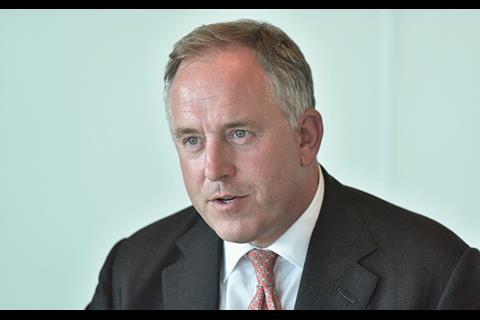



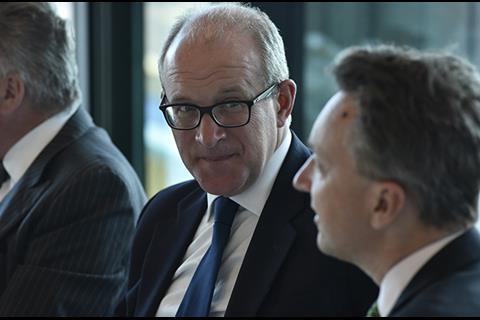




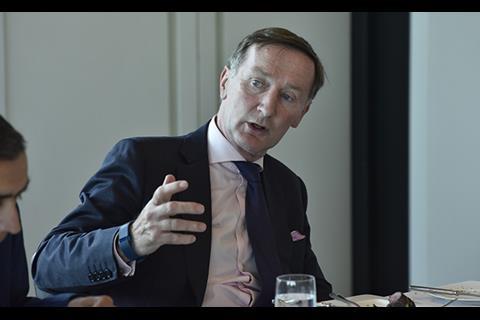








No comments yet